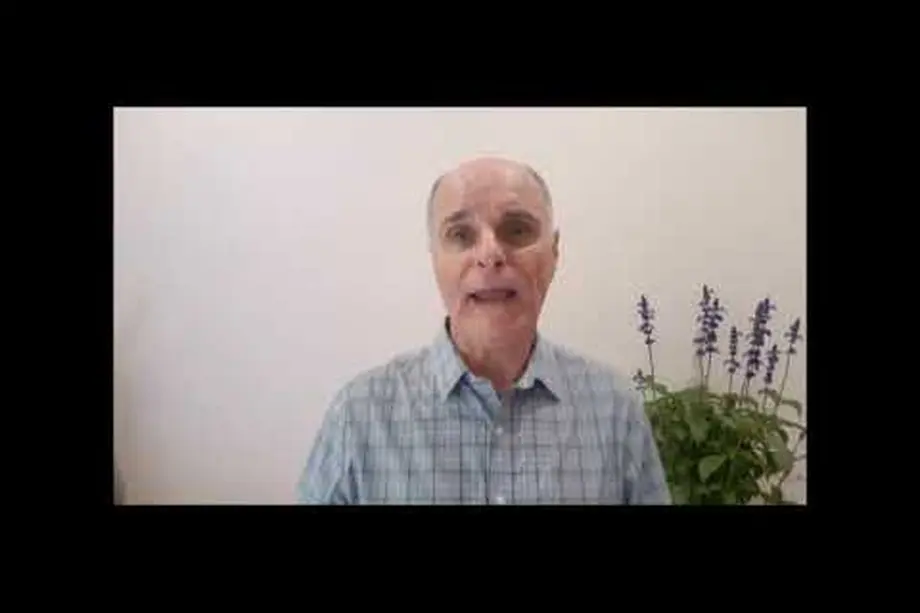Living with purpose during a pandemic
BlogChristian author Myles Munroe said, “The greatest tragedy in life is not death, but life without a purpose. It is dangerous to be alive and not know why you were given life.” Easy to say. But COVID-19 is a purpose stealer.
This is one of the things I have struggled with the most during the pandemic. How do you live with purpose when it seems as if COVID-19 has stolen your ability to do so much?
As I asked this question, I was reminded me of a poem I memorised at school called ‘On His Blindness’ by John Milton.
In the poem Milton writes about the fact that he has gone blind. He questions whether God still expects him to serve Him. The talent which he is best at doing is now “lodged with me useless.”
He is frustrated that he cannot serve God as he wants to.
But then he is reminded that you best serve God through faith and not works. The poem ends with: “They also serve who only stand and wait.”
I have felt very much like John Milton. The things that I feel I’m good at – speaking, teaching, inspiring, motivating – I have few opportunities to do. So, as Milton says, “does God exact day labour light denied?”
Lockdown exile
Life has changed. What we had planned for has gone out the window.
Proverbs 19:21 says “Many are the plans in a person’s heart, but it is the Lord’s purpose that prevails.”
The Jews living in exile returned back to Jerusalem after 70 years. The book of Jeremiah was written while they were still in captivity in Babylon (lockdown).
The Israelites must have felt, while in captivity, that God’s plans had gone out the window. But Jeremiah 29:10-14 tell us:
This is what the Lord says: “When seventy years are completed for Babylon, I will come to you and fulfil my good promise to bring you back to this place.11 For I know the plans I have for you,” declares the Lord, “plans to prosper you and not to harm you, plans to give you hope and a future. 12 Then you will call on me and come and pray to me, and I will listen to you. 13 You will seek me and find me when you seek me with all your heart. 14 I will be found by you,” declares the Lord, “and will bring you back from captivity. I will gather you from all the nations and places where I have banished you,” declares the Lord, “and will bring you back to the place from which I carried you into exile.
"Wherever you turn, you can find someone who needs you. Even if it is a little thing, do something for which there is no pay but the privilege of doing it. Remember, you don't live in a world all of your own." – Albert Schweitzer
The Message translation says, “When you come looking for me, you’ll find me. Yes, when you get serious about finding me and want it more than anything else, I’ll make sure you won’t be disappointed.”
What an incredible promise. But they had to wait 70 years before they were released from their lockdown.
Hopefully we don’t have to wait that long.
But let’s look at the promise God gave them: “‘For I know the plans I have for you,’ declares the Lord, ‘plans to prosper you and not to harm you, plans to give you hope and a future.’”
We need to believe that God has plans for us
Ephesians 2:10 says, “You were created in Christ Jesus for good works which God planned in advance for you to do…”
Stop thinking about what we have lost, such as face-to-face meetings with people, opportunities for some of the things we’re good at, or doing things we enjoy.
We need to concentrate on what we still have. What can we still do to serve God? It’s important to believe that God has a purpose and a plan for us during this time of COVID-19.
He does not want us just to sit this out, and when COVID-19 is all over, to get on with our lives. This is our life right now. So what is it that God wants us to do now.
Serving while we wait
A helpful statement to explore is: “The reason God has put me on Earth during the pandemic is so that…”
We can and must find ways to serve while we wait.
The Jews in exile, like Daniel and his friends Shadrach, Meshach, and Abednego, found ways to serve and they made a huge impact for God.
Some practical things we can do include:
- Praying. Prayer is something we can all do at this time. Many of our family and friends are in need of prayer. “Then you will call on me and come and pray to me, and I will listen to you.” (Jeremiah 29:12)
- Seeking God. We need to spend time seeking God with all our hearts. ‘You will seek me and find me when you seek me with all your heart. I will be found by you,’ declares the Lord.” (Jeremiah 29:13) We need to work hard at being disciplined with our devotional life because it’s easy for our hearts and spirits to become dull during this time.
- Share God’s love with people in need. Maybe you’re thinking, “I’m the one who needs help.” That may be true, but that should not stop us from also reaching out to others. “He comes alongside us when we go through hard times, and before you know it, he brings us alongside someone else who is going through hard times so that we can be there for that person just as God was there for us.” 2 Corinthians 1: 4 (The Message).
- It is difficult to visit people at this time, but you can still stay in contact with them. Make a list of family and friends, church members who you feel need a phone call or WhatsApp from you. Systematically go through the list and make those calls. Pray first. Ask God for wisdom to say helpful and encouraging words. Where you feel it is right, ask them if you can pray for them over the call.
- Meeting physical needs. Some have lost jobs, and some people need food parcels and money. The Church has made great effort to provide food for people and local churches need ongoing help to support those in need.
- Use your gifts and abilities. What gifts and abilities do you have that you can still use for God during the pandemic? John Milton bemoaned the fact that he had gone blind and could no longer serve God. But then he went on to write many amazing poems that did serve God and help people. So we need to stop concentrating on what we can’t do, and ask ourselves what we can do.
Albert Schweitzer
I was given Albert Schweitzer’s biography as a prize when I was at school. He was born in Germany near the French border and went on to become a theologian, musician and medical doctor. In 1913 he started a hospital in Gabon in West Africa and in 1952 won the Nobel Peace Prize.
He said: “I don’t know what your destiny will be, but one thing I know. The only ones among you who will really be happy are those who have sought and found how to serve.”
In serving we accomplish our vision.
"Wherever you turn, you can find someone who needs you. Even if it is a little thing, do something for which there is no pay but the privilege of doing it. Remember, you don't live in a world all of your own."
So we need to see this as a time of opportunity. God has plans for us, not just after COVID-19, but now, in the middle of the pandemic.
Watch Brian sharing his thoughts on video:
Featured

